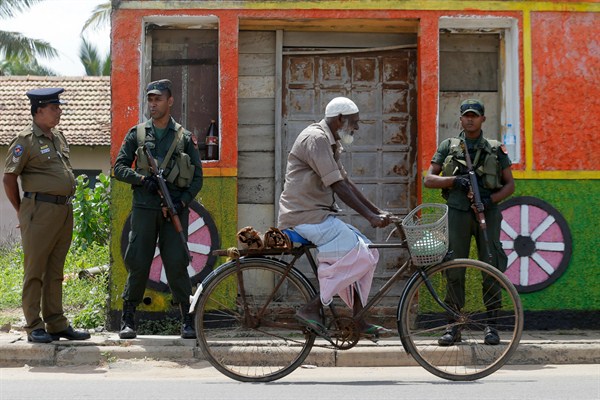The fallout from the coordinated suicide bombings in Sri Lanka on Easter Sunday, which the Islamic State claimed responsibility for, is likely to reverberate across South Asia. With the threat of more attacks still looming, according to U.S. officials, and the surprising reemergence of Islamic State leader Abu Bakr al-Baghdadi, will the Islamic State seize on South Asia as the new ground zero in what al-Baghdadi, in his video last week, called its “war of attrition”? The answer will depend in large part on whether leaders in the region resist the temptation to overreact and don’t give in to the same divisive and exclusionary form of politics that stokes extremism in the first place.
The attacks, in which nearly 300 people died and hundreds more were injured, are already threatening to upend a fragile post-civil war political order in Sri Lanka. They represent a clear intelligence failure, given revelations about apparently undetected links between the Islamic State and homegrown extremists involved in a little-known Islamist outfit, the National Thowheed Jamath, or NJT. The impact of all these factors on the national psyche of a country that is slowly and painfully emerging from a long civil war is incalculable.
This is, of course, what violent extremists like NJT leader Hashim Zahran, al-Baghdadi and their predecessor Osama bin Laden have always counted on. The attacks in Sri Lanka were all too predictable not just because Indian authorities warned the government of President Maithripala Sirisena, but because there was plenty of mounting evidence online and offline that for a significant swath of Sri Lankan Muslims, their marginalization increases the appeal of groups like NJT and the Islamic State.

